Join my community and receive my free ebook! Subscribe now >>
- Home Page of Holistic BP Health
- Holistic Health for Women of Color Podcast
- The Gratitude Challenge
- Season's Eatings Healthy Holiday Recipe Series
- About Me Overcoming HBP
- Healthy Crocktober Recipe Series
- Solo Build It Affiliate Program
- The Stress Solution Workshop
- Introducing The Weekly Stress Edit
- Eat to Listen: The Body Led Elimination Cooking Kit
Your Gentle Reset I Repairing Your Gut After Antibiotics!
Holistic Health For Women of Color Podcast, Episode #103
After a round of antibiotics, it’s normal to feel a little off, bloated, low on energy, not quite yourself. Repairing your gut after antibiotics isn’t about quick fixes; it’s about compassion for your body, gentle nourishment, and small, consistent habits that help your microbiome find its rhythm again.
Consider this your warm reset, a chance to listen in, heal from the inside out, and return to your days with calmer digestion, steadier energy, and renewed confidence.
Mentioned In This Episode - Eat to Listen: The Body Led Elimination Cooking Kit Program
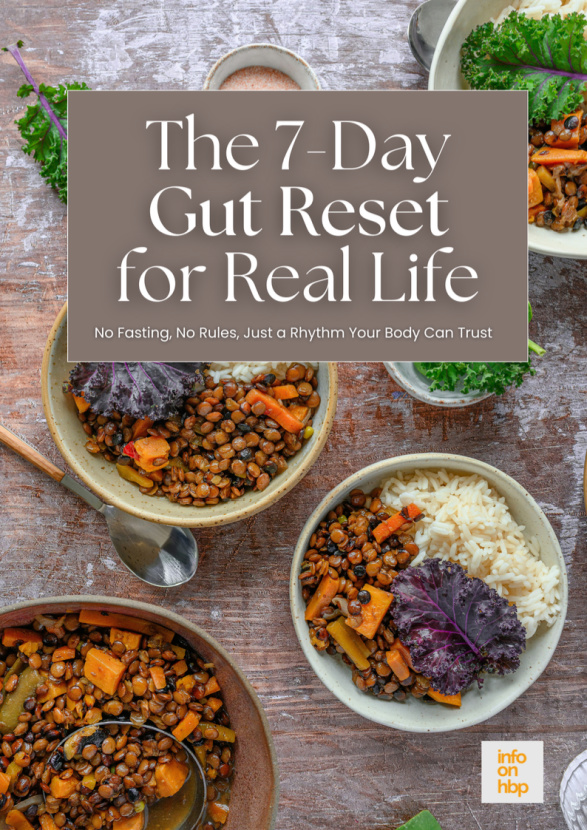
This is a body-led way to personalize your plan because your best guide is your body’s feedback. If you want a structured, compassionate framework to identify your personal food allies and triggers while you heal, explore my Eat to Listen: The Body Led Elimination Cooking Kit program. It’s designed to help you gently personalize your meals with calm, supportive recipes and step-by-step guidance. Learn more, purchase and then get started.
If this body-led approach resonates and you want a calm, structured way to discover which foods feel supportive right now, I created something to help. It’s called Eat to Listen: The Body Led Elimination Cooking Kit.
It guides you through a gentle elimination and reintroduction, without overwhelm, so you can personalize your meals, reduce guesswork, and feel more at home in your body.
Subscribe To These Episodes
Apple Listen on Apple Podcasts Spotify Listen on Spotify YouTube ChannelHolistic Health for Women of Color Podcast Core Value - Empowerment!
Welcome to Holistic Health for Women of Color podcast, the space where stress relief, mindset shifts, and natural healing meet real life. I’m Donna Williams, Certified Holistic Health Coach, wellness guide, and a woman who navigated high blood pressure and medication side effects by embracing culturally rooted, evidence-informed holistic living.
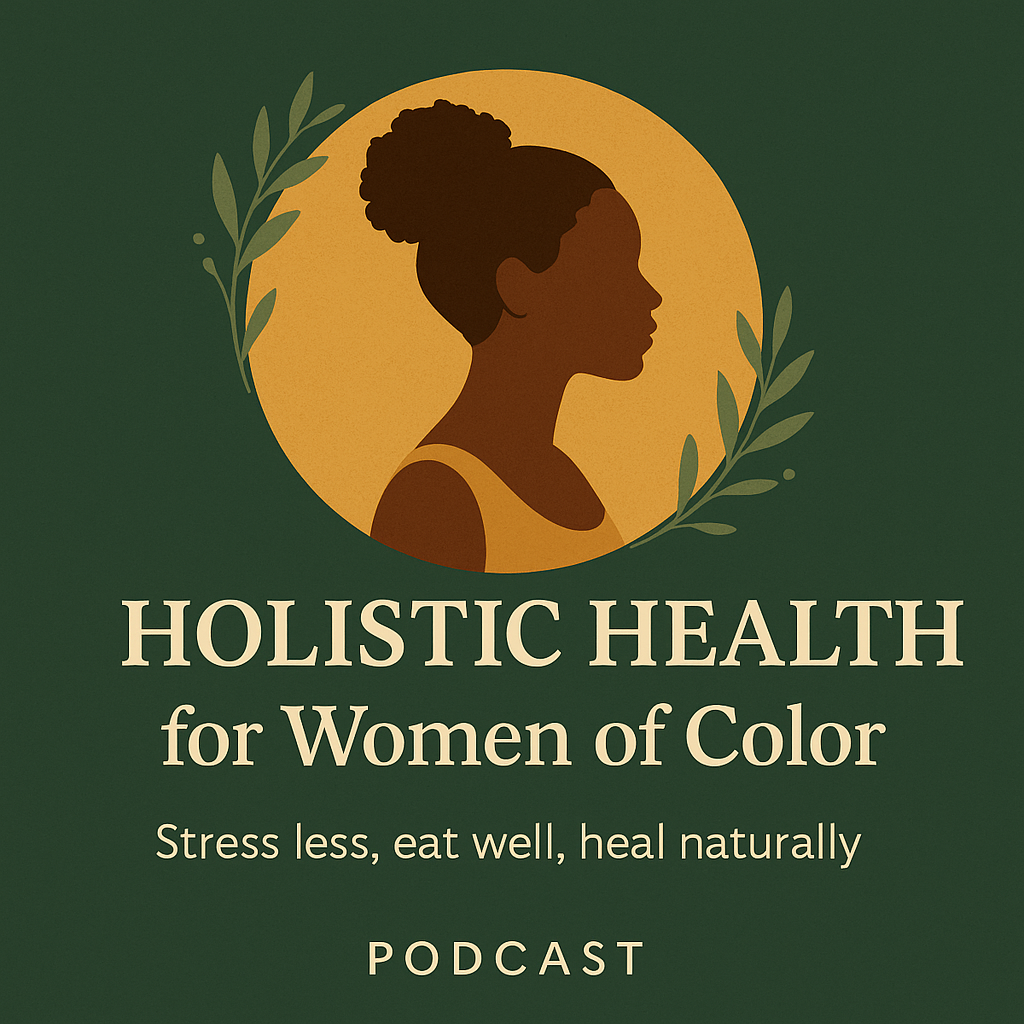
Now I help women of color reclaim their health on their own terms, with compassion, clarity, and tools that fit your life.
In each episode, you’ll get:
- Simple, science-backed guidance on food, herbs, and lifestyle.
- Culturally relevant practices and ancestral wisdom you can trust.
- Stress and nervous system support you can use today.
- Mindset strategies and habit tools that actually stick.
- Real stories, practical steps, and resources to keep you moving forward.
Your health, your way. Let’s nourish your body, protect your peace, and thrive, without perfection, pressure, or shame.
Today’s topic is Your Gentle Reset: Repairing Your Gut After Antibiotics!
Your Gentle Reset: Repairing Your Gut After Antibiotics Transcript, Episode #103
Today we’re talking about something many of us experience and few of us are taught to navigate, repairing your gut after antibiotics.
Antibiotics can be absolute heroes. And also, they can leave your inner ecosystem feeling a little…flattened. If you’ve noticed more bloating, weird bowel habits, lower energy, anxious edges, or even skin changes after antibiotics, this episode is for you. We’ll walk through a simple, body-led plan to support your microbiome, the gentle way.
And if you want a step-by-step cooking companion to personalize what you’re eating as you heal, learn more here about the details of about my Eat to Listen: The Body Led Elimination Cooking Kit.
Let’s get into it.
Why We Need Antibiotics?

Antibiotics are powerful, life-saving tools. They’re sometimes essential after surgery, when infections won’t resolve on their own, or when something more serious is at play, and they don’t discriminate. Along with the “bad guys,” antibiotics tend to wipe out some of the beneficial bacteria that help regulate digestion, immunity, mood, skin, and energy in balance.
A few days to a few weeks after your prescription, you may notice your digestion feels off, maybe your bloating lingers, your skin flares, sleep is rocky – its off, you’re more anxious than usual, or even your energy dips. For some, there’s also a sense of feeling disconnected from their body’s cues. These are signs your microbiome is asking for care.
The good news is you don’t need an extreme protocol or a drawer full of expensive supplements. Your gut often responds best to steady, consistent care, the kind that feels doable and deeply nourishing that invite balance back.
What Antibiotics Do and Why You Might Feel "Off".
Antibiotics are like a forest fire: sometimes necessary to stop a dangerous spread. But even a controlled burn changes the landscape. Your gut is home to trillions of microbes that help digest food, train the immune system, produce vitamins, make neurotransmitters that affect mood, and even help regulate sleep.
When antibiotics clear out the infection, they also reduce some of those beneficial populations. The result? Your digestion and nervous system may feel less steady.
Common post-antibiotic experiences: bloating, loose stools or constipation, a sense of heaviness or fatigue, anxious rumination, acne or eczema flares, sugar cravings, and sleep disruptions. None of this means you did anything wrong. It means your internal ecosystem is rebalancing, and you can help.
Here’s how to begin rebuilding after antibiotics, in a way that supports both your gut and your overall wellbeing.
First Aid During Your Antibiotic Course So You're Not Starting From Zero
If you’re currently taking antibiotics, here’s how to support your gut right now.
Expect a few off days. You’re supporting recovery, not chasing perfection. Now don’t overhaul your diet mid-infection. Aim for simple, warm meals, and steady fluids and comfort.
If your clinician says probiotics are appropriate for you, take them at least 2–3 hours away from your antibiotic dose. Many people do antibiotics with breakfast, probiotics mid-afternoon or at bedtime.
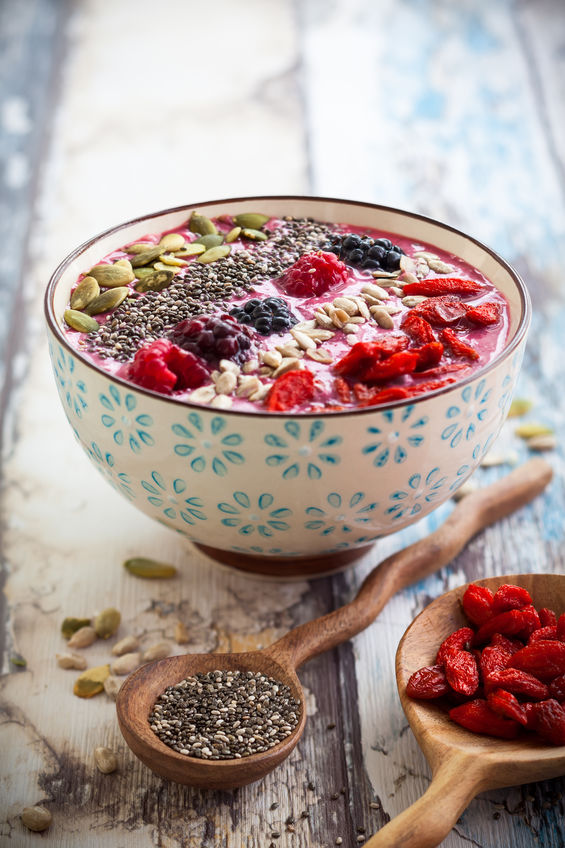 Chia Seed Breakfast
Chia Seed Breakfast- Feed the Good Bacteria That Remain: Think of your gut like a garden after a frost. The soil is still fertile, and some roots are still alive. Your beneficial microbes haven’t disappeared. They’re just depleted and in need of support, the goal is to nurture what remains and create a healthy environment for regrowth. So, before jumping into high-dose probiotics, focus on feeding the good bacteria that are still there. Your job is to nourish what’s left and create the conditions for regrowth. This is where prebiotic-rich foods make a big difference. These are fibers that nourish good bacteria and help them grow stronger. Try including Prebiotic-rich foods they are the fertilizer: - Resistant starch: cooked-then-cooled potatoes, rice, or oats - Garlic, onions, leeks - Green bananas or lightly cooked plantains - Asparagus, Jerusalem artichokes, and dandelion greens - Legumes: lentils, chickpeas, black beans (start small if gassy) - Ground flaxseed or chia for gentle soluble fiber Start slowly, especially if you’re sensitive. Even a tablespoon or two added to one meal daily can help gently encourage microbial diversity.
- Reintroduce Probiotics Gradually: Probiotics can be useful, but they’re not a magic fix. If your system feels fragile, starting with small amounts through whole foods can be more tolerable than jumping straight into supplements. The gentlest path is often food first. Fermented foods offer a gentle, food-based way to reintroduce beneficial bacteria: - Fermented foods to try: 1–2 teaspoons raw sauerkraut or kimchi; 1/4–1/2 cup kefir or plain yogurt with live cultures; a few sips of brine from naturally fermented pickles; miso stirred into warm (not boiling) broth. - If supplementing, consider a single-strain or two-strain formula first. - A few sips of pickle brine (from naturally fermented pickles) - Start slowly. Pay attention to how you feel. If something increases bloating or discomfort, it might be the wrong strain or the wrong timing for now. It’s okay to pause or adjust if your body asks for something different. Pivoting is not failure; it’s body-led.
- Offer Your Gut a Period of Rest: After a course of antibiotics, your digestive lining may be inflamed or more permeable than usual. This isn’t cause for panic, but it’s a good reason to simplify. Instead of jumping into a restrictive cleanse or elimination diet, focus on meals that are gentle, warm, and easy to digest. Simplify for a week or two, aim for: · Home-cooked meals made from whole ingredients · Soups, stews, congee, and well-cooked vegetables ·Bone broth or vegetable stock to support repair ·Lightly cooked oats, chia pudding or a green-banana smoothie with cinnamon for soothing fiber If you drink coffee, try it after breakfast rather than first thing. Reduce sugar, alcohol, and any ultra-processed foods during this time. These can feed the wrong kinds of microbes and delay the healing process. By removing a few irritants and offering calm nourishment, you allow your gut to do what it’s built to do: repair.
- Support Your Whole Ecosystem: Your microbiome doesn’t operate in isolation, it listens to your whole life, not just your plate. It responds to your rhythms, your stress, your sleep, and your movement. To fully support gut repair, you’ll want to create a supportive environment beyond food alone. Start here: · Hydration: Sip water throughout the day. If you like you can add a pinch of mineral salt or a squeeze of citrus to 1–2 glasses if you tend to run dry. Dehydration can slow digestion and make everything feel more sluggish. · Sleep: Deep rest helps your gut reset. Your circadian rhythm and microbiome are closely linked, so consistent sleep is part of the repair process. · Movement: Gentle walking, stretching, or restorative yoga can help stimulate digestion and reduce bloating. · Nervous system care: Chronic stress can disrupt your microbiome. Carve out small moments for stillness, even if it’s just two minutes of slow deep belly breathing before meals to flip on “rest and digest.” A couple of minutes truly helps.

Now Lets Talk About Troubleshooting and Common Detours
Let's say you said to me..
- “I added fiber and now I’m bloated.” Pull back, cut the amount in half, increase water, and add a short walk after meals. You can also cook veggies longer.
- “Probiotics upset my stomach.” Try food-based ferments first or a different strain. Sometimes you just need more time with soothing meals.
- “I’m craving sugar hard.” It’s common after antibiotics. Anchor meals with protein, fiber, and fat. Cinnamon tea can help. So can getting ahead of hunger.
- “I don’t have time to cook.” Batch a pot of broth, a tray of roasted veggies, and a pot of rice or oats you can cool and reheat. Keep canned beans, frozen veggies, and eggs on hand.
When To Get Extra Help When Repairing Your Gut After Antibiotics!
If after a month you’re still struggling with daily pain, urgent diarrhea, unexplained weight loss, or significant fatigue, team up with a clinician. Personalized testing and care can be a gift. You’re not behind; you’re being thorough.
If you’re tracking symptoms, note these daily: bloating rating, stool consistency, energy, mood, and sleep. Look for trends, not perfection.
Common Mistakes to Avoid
- Going “all-in” too fast: Overloading fiber or probiotics can cause bloating. Start low and go slow.
- Relying only on pills: Supplements can help, but food and routine are the foundation.
- Skipping sleep and stress care: Your nervous system is a major lever for gut repair.
If You Can Only Do Three Things, These Are They
- Eat one prebiotic-rich food daily.
- Include one fermented food most days.
- Prioritize 7–9 hours of sleep with a consistent bedtime.
Signs You're On The Right Track
- Less bloating and more regularity
- More stable energy and mood
- Fewer urgent bathroom trips
- Better sleep quality and fewer afternoon crashes
When To Call Your Clinician
- Fever, blood in stool, severe abdominal pain, or symptoms of dehydration
- Diarrhea that lasts more than 3 days or is getting worse
- Recent antibiotics plus severe diarrhea (rule out C. difficile)
- You’re immunocompromised or pregnant and considering probiotics
None of these steps need to be rigid. Think of them as invitations, not rules. Over time, they create the conditions your body needs to regain balance.
Everyone’s recovery timeline is different. For some, things begin to settle within a week or two. For others, it may take longer to feel steady again, especially after repeated antibiotic use or if your gut was already under stress beforehand.
What matters most is listening to your body and responding with care. You don’t need to rush or get it perfect. Just take one step at a time and let the process unfold.
Keep In Mind You Already Know How To Heal
Your body remembers. Your job is to create the conditions, to offer warmth, rest, steady nourishment, and compassion. There’s no gold star for pushing. There’s only listening, responding, and trusting that small, consistent steps can restore a lot.
If you want support implementing today’s Repairing Your Gut After Antibiotics episode #103, check out Eat to Listen: The Body Led Elimination Cooking Kit. It’s designed to help you personalize your nutrition with calm clarity and a step-by-step, body-led approach.
Thank you for being here, for tuning in to Holistic Health for Women of Color podcast topic 'Your Gentle Reset: Repairing Your Gut After Antibiotics', for caring for your inner ecosystem, and for choosing the gentle path. If this episode helped, share it with a friend who’s in recovery mode after antibiotics. I’ll see you next time.
Return from Your Gentle Reset: Repairing Your Gut After Antibiotics to Coronavirus
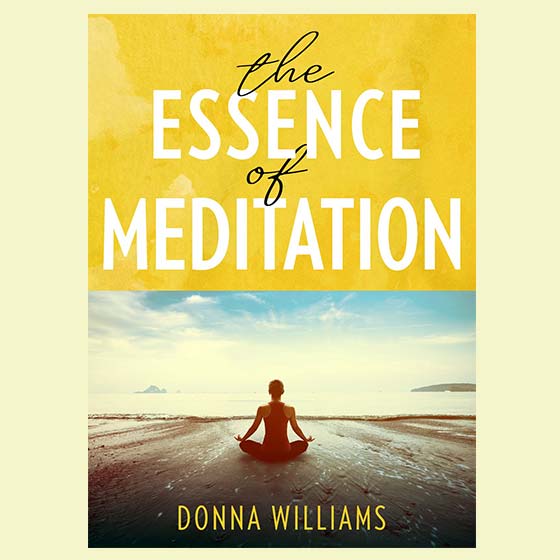
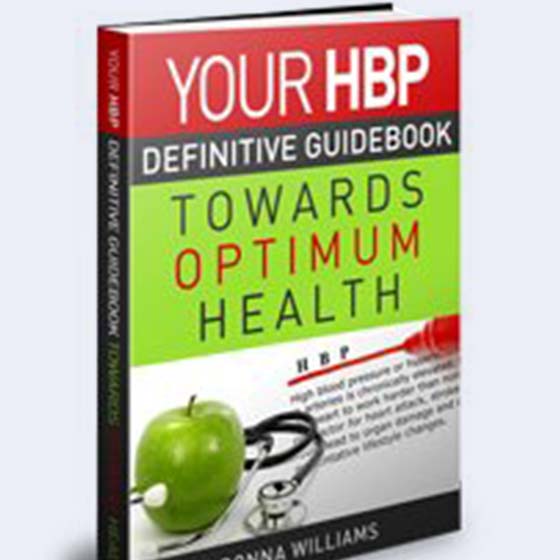


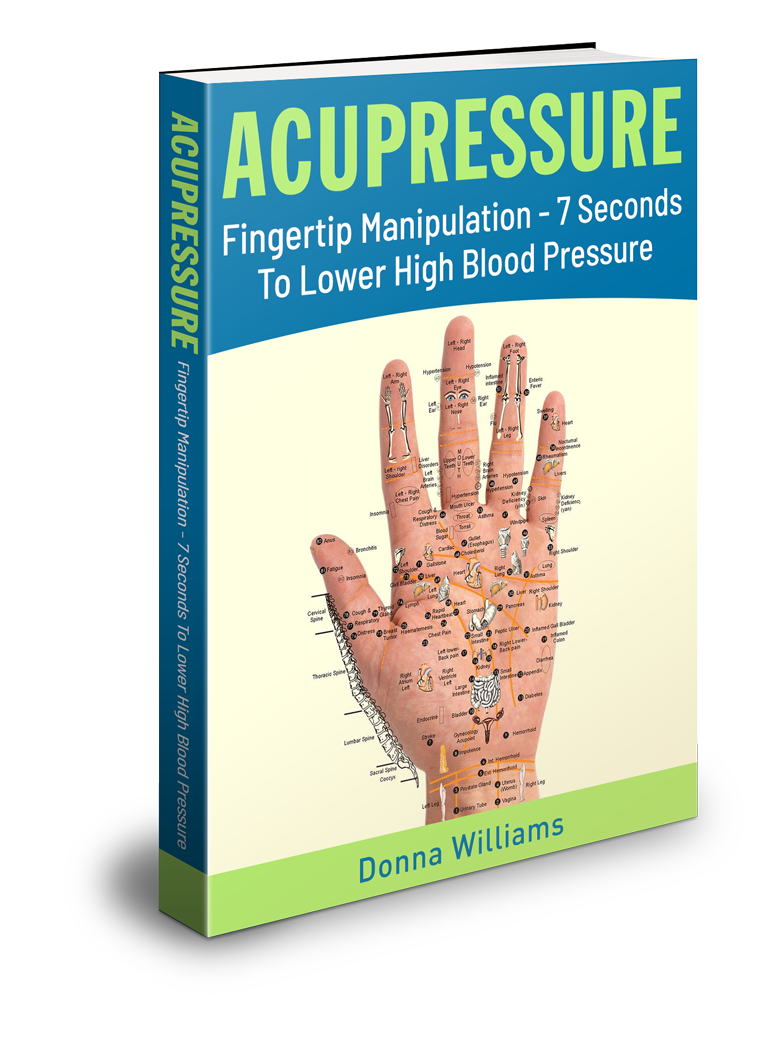
New! Comments
Have your say about what you just read! Leave me a comment in the box below.